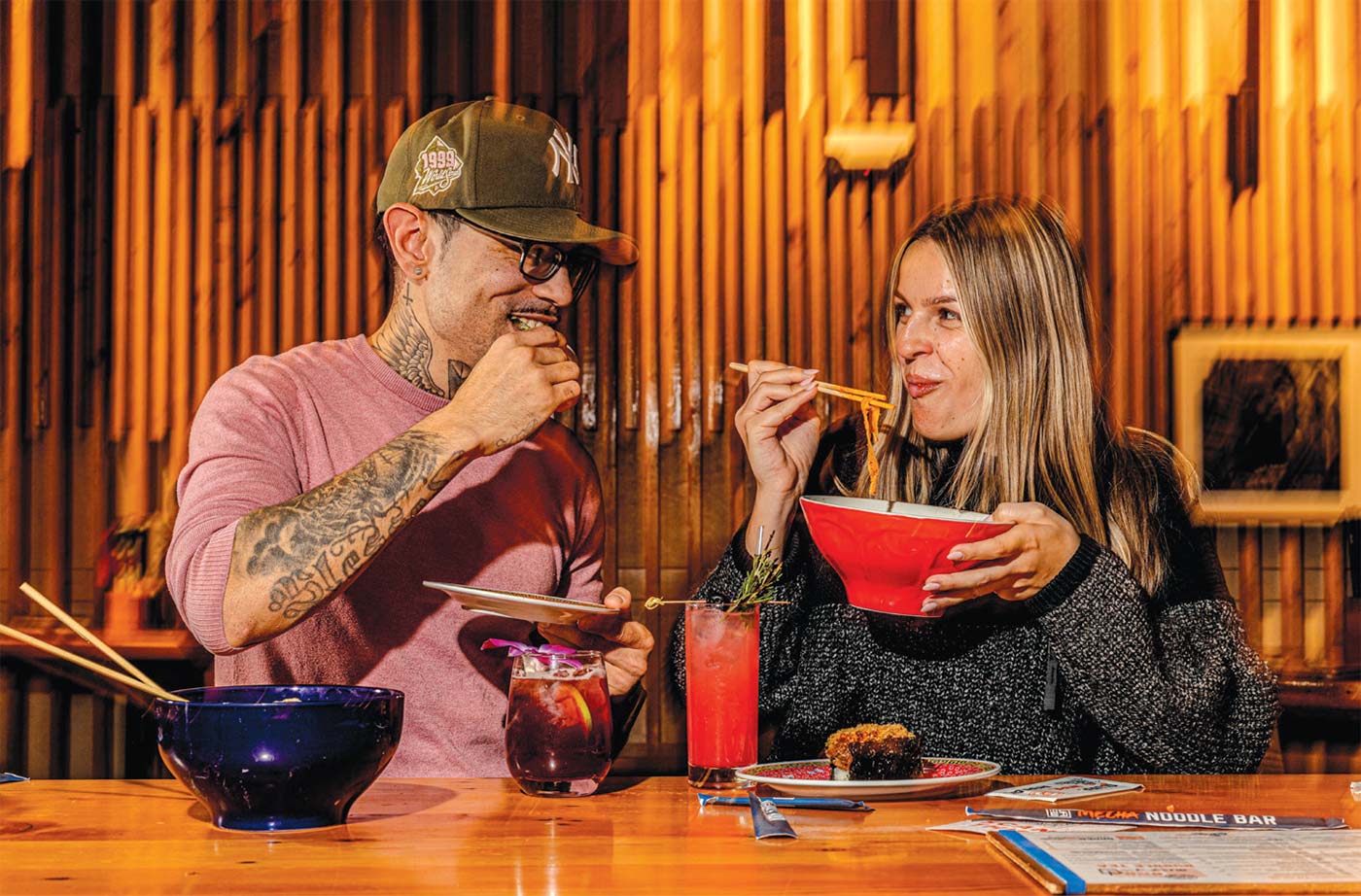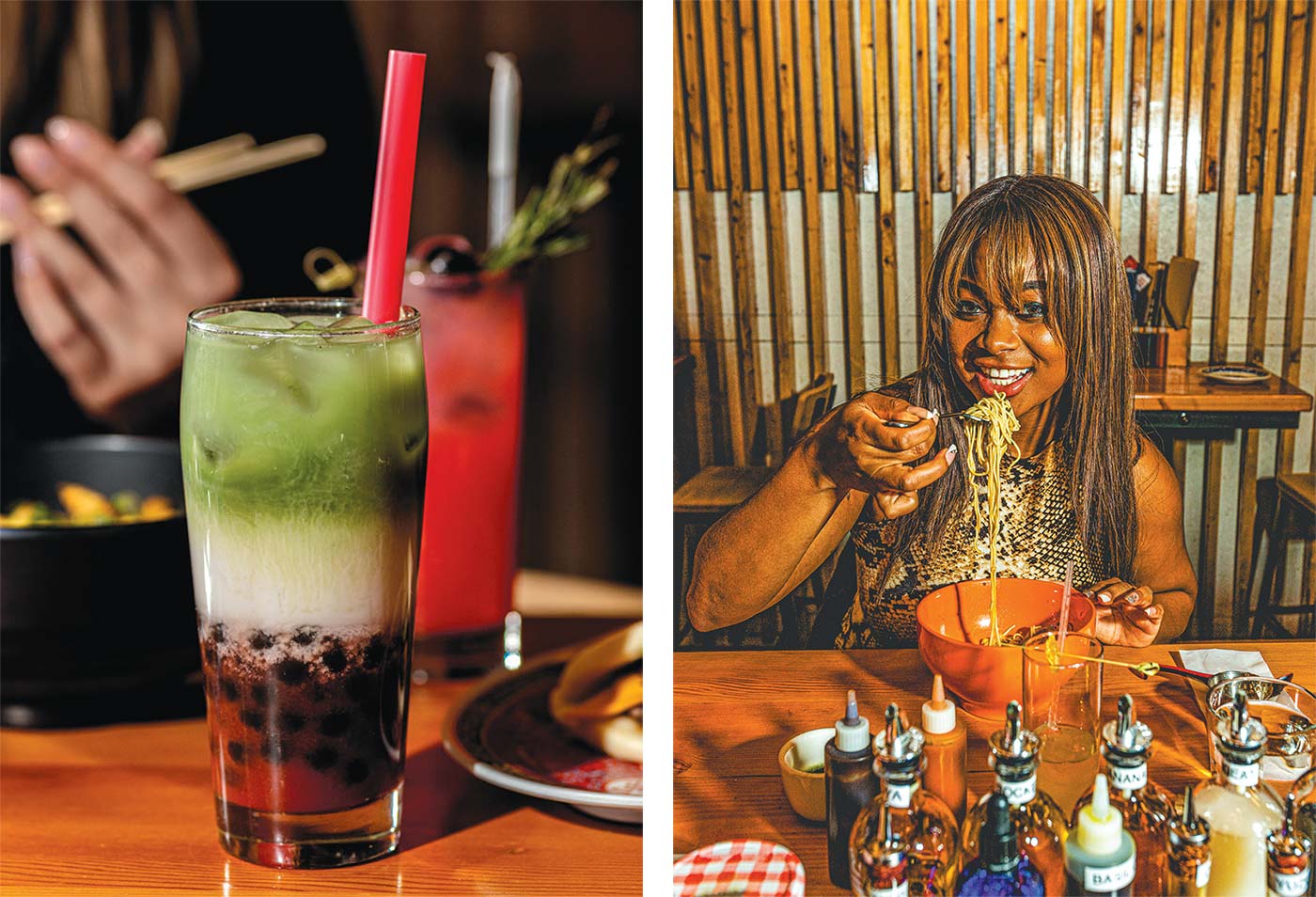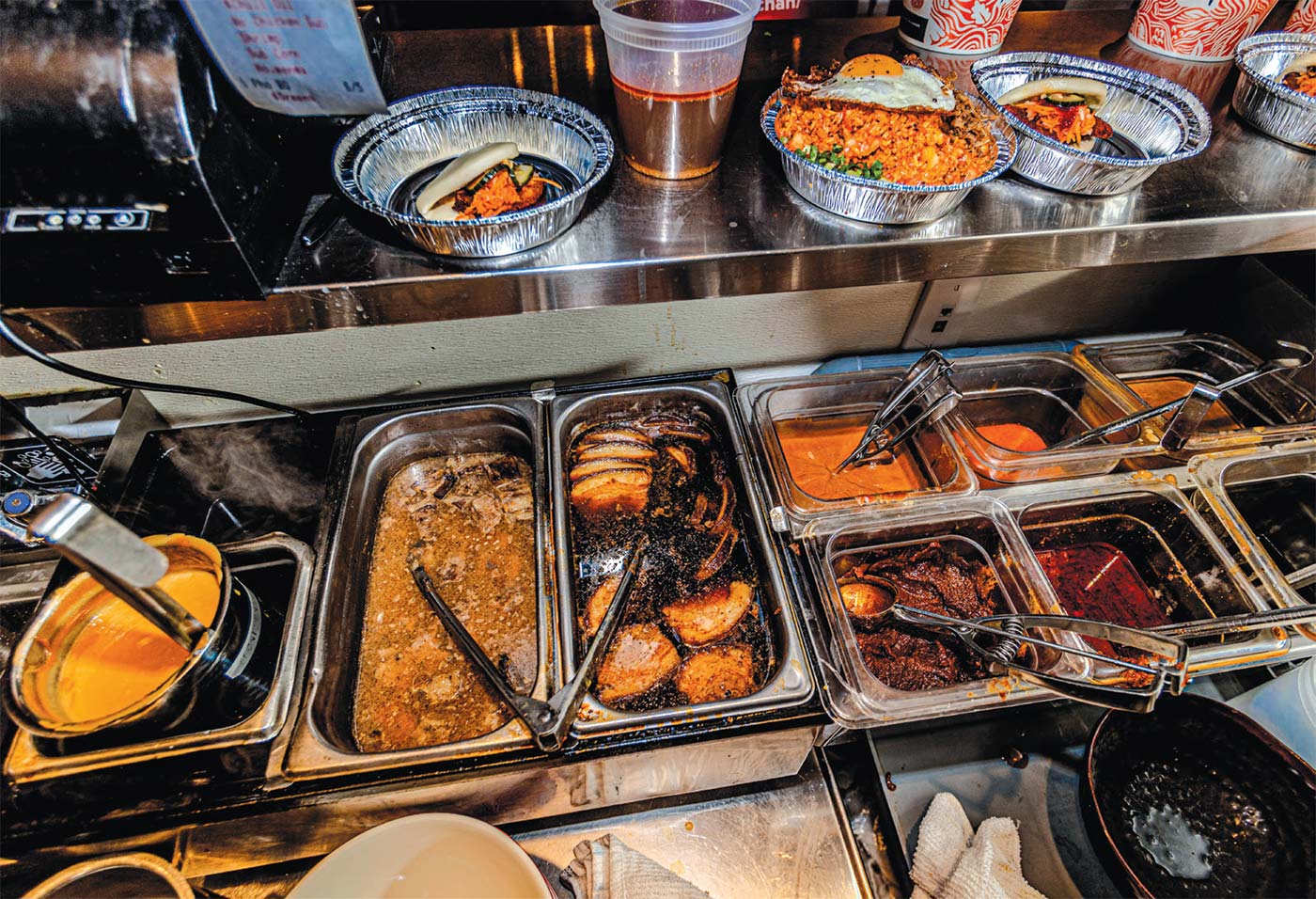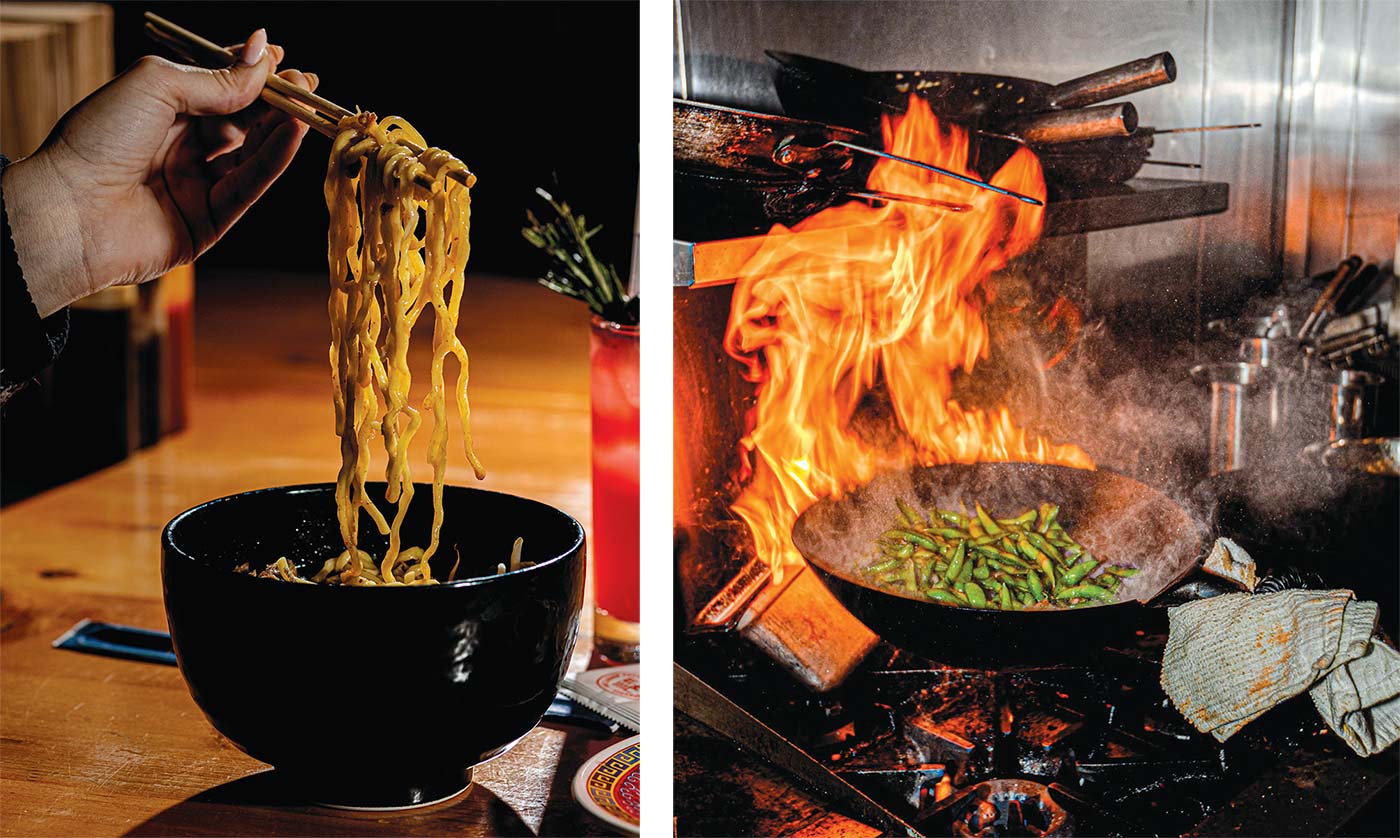Mecha Noodle Bar: Building a Ramen and Pho Empire
Food brought Mecha Noodle founders Tony Pham and Rich Reyes together.
“The first time we met, we were in first grade, and it was at my cousin's birthday party,” Tony recalls. “And I see this 7-year-old kid eating this classic Vietnamese dish. It was fried quail, and if you look, it's like the whole piece of quail. So, it has the wings on it and everything. And he was chomping it down. I'm like, ‘who is this kid?’ Because usually, people in our school would be afraid of something like that. ”
Today Rich and Tony are the co-founders and co-CEOs of Mecha Noodle, a Connecticut-born, growing ramen and pho empire with 10 locations across the U.S. Mecha’s Connecticut locations include Fairfield, Norwalk, Stamford, New Haven and West Hartford, outside the state there are two Mecha locations in Massachusetts (in Brookline and Boston) as well as locations in Denver, Colorado, Columbus, Ohio and Washington, D.C.
Beyond food, Rich and Tony run Eat Justice, a charity arm of the restaurant that donates $.50 cents per every bowl of ramen sold at any Mecha location. This effort is expected to reach more than $1 million in donations raised this winter. This money goes to projects such as The Sunflower Mission, which aims to improve the lives of people living in Vietnam through educational assistance programs.
“My family always said, ‘do whatever you want during school and after school, but always come home for dinner. ’” —Tony Pham

Diners enjoying a meal at the bar, slurps are welcome
Recently, Tony and Rich shared the story of how Mecha Noodle was founded and what continues to inspire them. Unsurprisingly to anyone who has been to one of Mecha Noodle’s locations, it’s a cross-cultural story of friendship, family and community set against the backdrop of steaming bowls of soup and other comfort food.
Tony’s family came from Vietnam while Rich’s family came from Dominican Republic. They both grew up in Bethel, Connecticut and were immersed in the cuisines of their respective culture. And it was this food that served as the bedrock on which their friendship was built.
“It was really centered around our cultures and the love of food, and how food brings our cultures together,” Tony says. “My family always said, ‘do whatever you want during school and after school, but always come home for dinner. ’”
Rich’s father opened a deli after coming to the U.S. with hardly any savings. “I grew up behind the counter,” Rich says. Even as a little kid, between pre- K and kindergarten, he would ring people up at the register. “That was my education,” he says.
However, neither of them envisioned a life in the restaurant industry, not at first. In college, Tony was pursuing a degree in nursing while Rich was at New York University studying to become a lawyer. Fate had other ideas.
In the 2000s, when Tony was 21 and beginning his nursing studies, his mom asked him to help open a family pho restaurant. The family opened this restaurant in 2006, it was called Pho Vietnam. The restaurant has since expanded to a second Danbury location but what Tony calls the original “hole in the wall” location is still there. Pho Vietnam was one of the first pho places in the region and helped to popularize the cuisine in Connecticut. It also caused Tony to fall in love with cooking and the world of restaurants.
Meanwhile, Rich was also drawn back to his food service roots. When he went to college, he’d vowed never to get behind the deli counter again. “I swore off the industry and told my dad that I would never work in hospitality,” he says. But after working in non-profits, law, and investment banking, he found himself drawn back to the kitchen. Going out in New York City he’d fallen in love with the idea of hospitality as an art form and decided to open his first restaurant in Danbury called Mezon Tapas Bar & Restaurant in 2011. That restaurant morphed into Mariposa Taqueira restaurant during the pandemic.
A few years into its existence, Pho Vietnam was a huge success and Tony, and his family decided to expand. At the same time, Tony found himself fascinated with a different type of steaming noodle soup: ramen. This was the era when David Chang’s Momofuku was exploding in popularity in New York City. Meanwhile dining across Connecticut was becoming more diverse and sophisticated. Craft beer and cocktails were a part of more and more restaurant’s beverage programs and high-end cuisines normally found only in major cities were spreading to the suburbs.
Tony thought Connecticut was ready for the ramen craze which had already entered big cities. He studied with master ramen makers in Japan and the first Mecha Noodle location opened in 2013, but his hunch that Connecticut was ready for the ramen revolution wasn’t exactly correct. “I was really wrong about that idea,” he jokes. “No one, no one knew what ramen was in Connecticut. They just knew the instant ramen. So, we had this this learning curve. ”

Left: Strawberry Matcha Boba; Right: more happiness at the bar
However, soon people learned that the ramen Mecha was offering was nothing like the cheap instant food they’d had in college and was instead serving a high-quality, slow-cooked broth made with painstaking attention to detail. The restaurant soon earned a following and Tony started thinking about expanding, but to do so he knew he’d need help.
While Rich had not officially been a part of Mecha in 2013, he was there with Tony until 2 a.m. the night before it opened and had been part of many of the ups and downs of the new restaurant concept alongside his friend. Rich joined forces with Tony as they began expanding Mecha and their combined skills amounted to a restaurant superpower. “We leveraged his highest and best which we always like to call ‘the instinct’ and my highest and best, which we always like to call ‘the intellect,’” Rich says.
Together for more than a decade now Rich and Tony have been bringing pho and ramen to the masses.
Though ramen and pho are both noodle soups, the similarities end there. Ramen uses wheat noodles while pho uses rice noodles, and the broths are not only prepared differently they are created with an entirely different philosophy.
“Pho isn't just pho,” Tony says. It changes between regions and even within the same family depending on who is cooking it and what they have available. “From my aunt to my mom, to my grandma, their pho is slightly different,” Tony adds. “There's beauty in evolution, and there's a beauty in using what you have and changing it up to your style. ”

The work station in the kitchen

A Smashburger Bao
Ramen takes a stricter approach that is less jazz improvisation and more classical music execution. “With ramen, it's more precise, it’s more surgical,” Tony says.
Mecha Noodle Bar is rare in that it embraces both styles of broth and does so with such high quality. These broths anchor a seasonally changing menu that includes steam bao, wings, and laksa — a spicy Southeast Asian noodle dish. There’s also a widely creative bar program and a lineup of bubble teas offered. Finally, no matter what Mecha location you visit, there is a distinct vibe. It’s open and laidback with lots of sleek wood including blocks hanging from the ceiling inspired by samurai swords and noodles. The music is fun and loud — in a good way — inspired by the hip-hop Rich and Tony enjoyed in the late 1990s and 2000s.
The duo hopes to continue to offer new Mecha locations in Connecticut and beyond, but the brand is very clearly about more than just quarterly gains. When they went into business together Rich and Tony made a promise to one another “to build a company that was transformational and not just transactional,” Rich says. “Our growth plan is really to just continue to embed ourselves in communities and use our restaurants as a platform for change and transformation. ”





